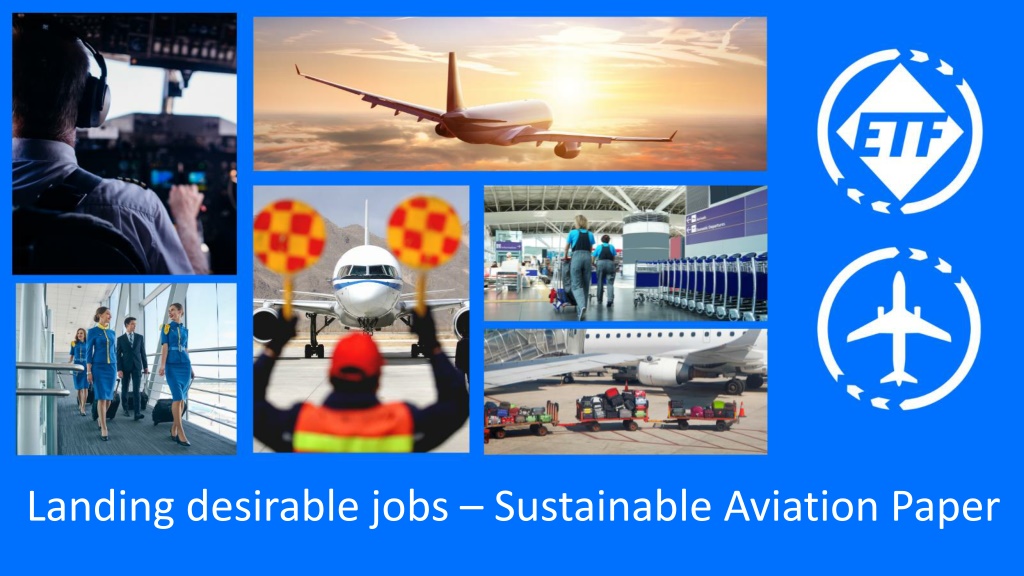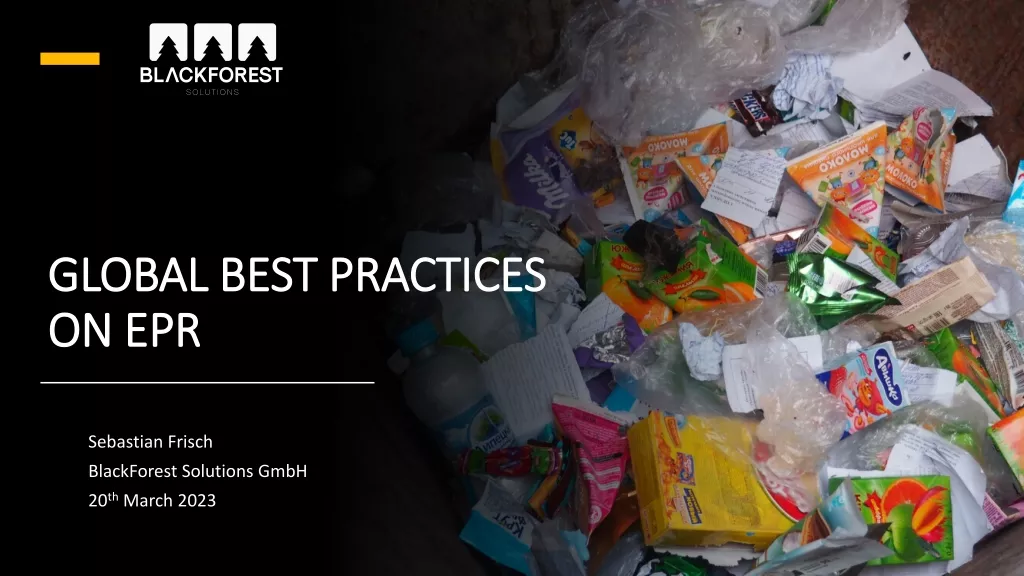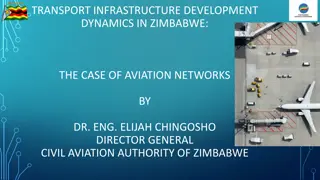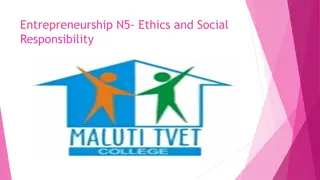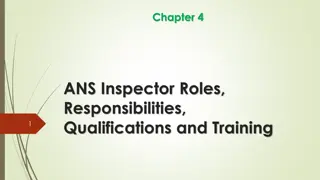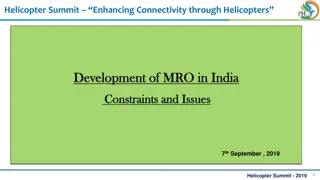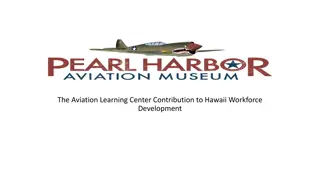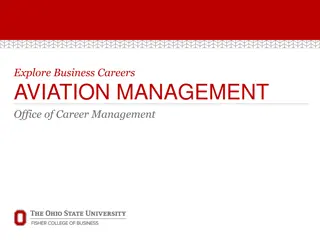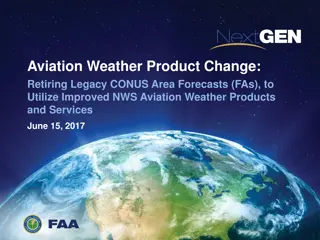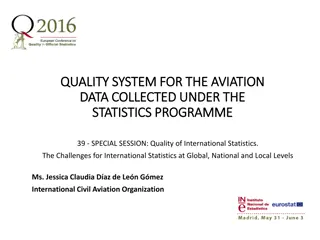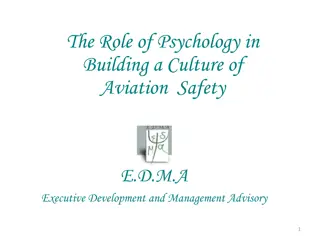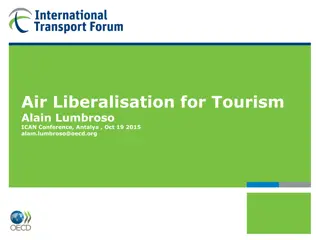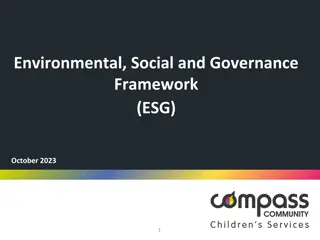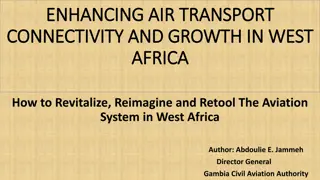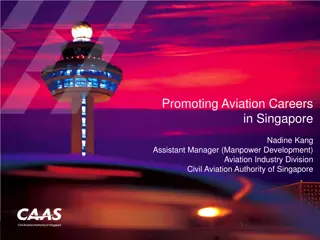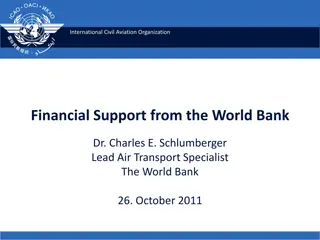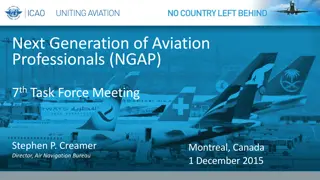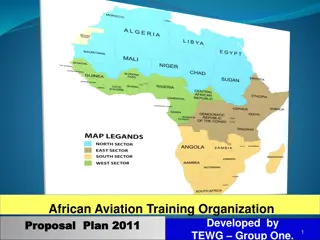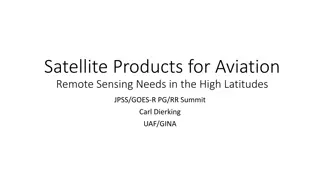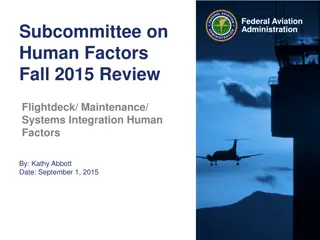Sustainable Aviation: A Path Towards Environmental and Social Responsibility
This paper explores the intersection of environmental sustainability and workers' concerns in the aviation industry. It emphasizes the importance of legislative proposals to improve the sector's environmental impact and advocates for a quality-over-quantity approach to flying. The paper outlines a structured discussion on topics ranging from climate change contributions to the just transition for workers in the industry.
Download Presentation

Please find below an Image/Link to download the presentation.
The content on the website is provided AS IS for your information and personal use only. It may not be sold, licensed, or shared on other websites without obtaining consent from the author. Download presentation by click this link. If you encounter any issues during the download, it is possible that the publisher has removed the file from their server.
E N D
Presentation Transcript
THIS IS A COLLECTIVE WORK OF ETF AFFILIATED TRADE UNIONS External study (w/data on avia contribution to GHG emissions) Sustainable Aviation Working Group Ad-hoc climate workshop Bilateral interviews Secretariat had environmental NGOs Written contributions affiliates sent Coherent with ITF paper on sustainable aviation
A BROAD AND NUANCED POSITION Environmental sustainability is important Express support for legislative proposals/debate that improve envi impact of sector Formulate own proposals/criticisms in all sub-sectors (air, ground, ATM) Recognise that aviation needs to do its part in reducing GHG emissions BECAUSE it concerns workers too Only healthy jobs are sustainable jobs Prioritise quality flying over quantity Never separate environmental from social
STRUCTURE OF THE PAPER INTRODUCTION AVIATION IS A COMMON GOOD THE PLANET IS FINE WHAT ABOUT THE WORKERS? WHO PICKS UP THE BILL ? JUST TRANSITION CONCLUSION
INTRODUCTION Context setting: IPCC, Paris agreement Data on climate change on aviation contribution to GHG emissions Overview of workers issues with focus on COVID Political chapeau Workers are aware and care about environmental sustainability workers can t pay the price of climate change measures
AVIATION IS A COMMON GOOD Consumers behavioural change Not enough for climate crisis Hypocritical and harmful to shame ordinary people for flying Travelling is a right Useful for work Essential for maintaining social bonds Travel within the planet s limits Emphasis on quality flying (e.g. renew old cargo jets, operate passenger jets at full capacity, choose most efficient route )
THE PLANET IS FINE WHAT ABOUT THE WORKERS ? Air quality Cabin UFP on the ground Airports Electrification of airport ops Taxi by tow trucks Switch off APU Renewable energy installation More capacity development? Fuel and SAFs (ReFuelEU Aviation) Support, incentivise, promote SAFs Eye on carbon-intensity and origin of SAFs Challenge of supply gap Role of ATM Improve route efficiency both and Not always possible (risk: greenwashing) Prioritise safety
1/2 WHO PICKS UP THE BILL ? Energy taxation Agree, matter of climate and social justice: careful with repercussion on workers ETS and CORSIA Agree, but price is too low. No to free allocation Market-based offsetting scheme ok, but not ideal solution Ideally EU mandated to negotiate as much as possible at global level, but difficult Ambition, especially at intl level, still underwhelming SAF uptake through ATM charges Concrete proposal: ATM charges based on environmentally friendly route Penalty system for not complying with most environmentally friendly route No charges when using SAFs
2/2 WHO PICKS UP THE BILL ? Tackling the low-cost model Jobs are rarely sustainable for workers Social considerations don t always fit with low prices The carbon footprint of the richest Private jets are 5 to 14 times more polluting than commercial flights per passenger From 2030 onwards, only zero-carbon private flights should be allowed Private flights should also be included in CORSIA
CHALLENGES FACING AVIATION WORKERS Modal Shift Reduction of air travel by governments Post-COVID recovery Cyclical nature of the aviation industry
JUST TRANSITION Aviation major asset for states: Public good Need for greater democratic oversight of aviation companies Employment/Social protection schemes Technological Advancement Taxation (used for JT funding) Democratic participation of workers through Just Transition committees Workers engagement in debarbonisation is essential Just Transition committees Training, reskilling & adequate funding Priority remains worker retention in existing role
JUST TRANSITION In cases of job loss Robust training programme Worker decision on what that training is, up to including university education Equal pay and conditions in new role Ensure union representation Revise governance systems at airports Worker Community Approach E.g. Airport Committees
JUST TRANSITION Creation of Just Transition committees in all companies Avoid job destruction Plan large-scale professional retraining Ensure necessary funding for transition Especially important in locations where aviation is a major employer (airport towns)
THANKS FOR YOUR ATTENTION AND CONNECT WITH US ! https://www.etf-europe.org/ ETF_Europe Mila Shamku Policy Officer for Aviation at ETF m.shamku@etf-europe.org ETF.Europe https://tinyurl.com/52s868c9
